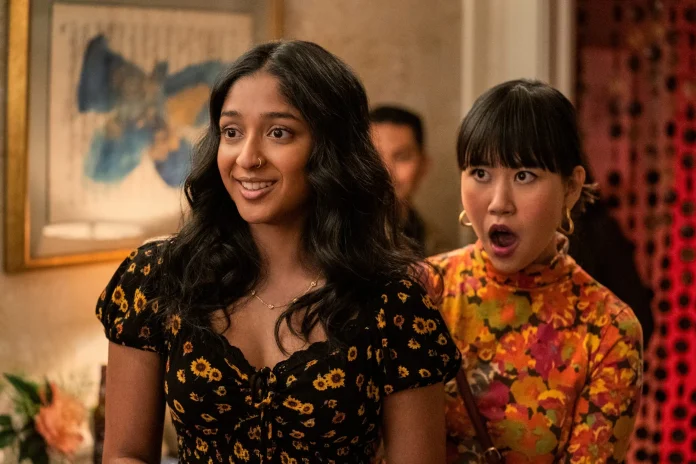There’s one only way to watch Mindy Kaling’s wicked portrayal of the Indian-American teenager in Netflix’s Never Have I Ever Season 4 — plug in and shut your brain down. The show, named after a drinking game, grows on you like any saucy teen drama. It’s a story about a hothead teenager in California Valley who ends up having everything she ever dreamt of.
Also read: Ted Lasso’s last season a messy end to a brilliant show. Mind-numbing sub-plots make it worse
Chasing relatability
More than the Indian diaspora storyline, Never Have I Ever has spent four seasons chasing relatability. The show has cramped up random pop culture references in each episode like a name-dropping narcissist. Timothee Chalamet, Taylor Swift, Riverdale, Euphoria, Dua Lipa, Michelle Obama, Dawson’s Creek, and whatnot come out of the blue. You almost feel embarrassed for the wannabe-cool showrunner.
Speaking of embarrassment, the series continues to show a myopic view of Indian culture season after season, even after being heavily criticised for it. Kaling and Fisher will have you believe that the Indian subcontinent is ruled by Tamil Brahmins. Forget about caste representation, the show has space just for Hindu gods. When Devi sits down to pray in season 4, every idol placed on the table is given separate screen time.
Also read: Beau is Afraid a blood-curdling work of art. Joaquin Phoenix elevates horror to new heights
Salty, sexy mothers & grandmothers
Never Have I Ever keeps reminding you that it’s showcasing multiple generations of Indian-American women — Devi and her cousin Kamala, her mother Nalini, and her grandmother Nirmala, whose story does take you by surprise. She is a paati-turned-sex-positive-grandma who falls for a white man and can’t shut up about how she ‘satisfies’ him. Proving that Devi is her granddaughter, she calls a hot teenage boy Chex Mix. Her salty character is one refreshing way to show Indian elderly women on screen, but it would have worked better if Ranjita Chakravarty had any acting skills.
Meanwhile, Devi’s mother Nalini (played by Poorna Jagannathan) is more believable in her dating escapade. Both Nalini and Nirmala have come a long way to believe that they deserve to act on their desires. And that their lives aren’t meaningless just because their husbands died.
Thanks to Nirmala’s love story, Never Have I Ever ends with a dance performance by Devi and Kamala on Mounika Yadav’s Saami Saami from Pushpa (2021). It’s tolerable as far as these things go in diaspora storylines. The finale season of the series struggles to wrap up the scattered storyline, though. Arguments are miraculously resolved, exes become friends, and friends turn into lovers. In all fairness, nothing more should be expected from a platitudinal coming-of-age story.
(Edited by Humra Laeeq)



